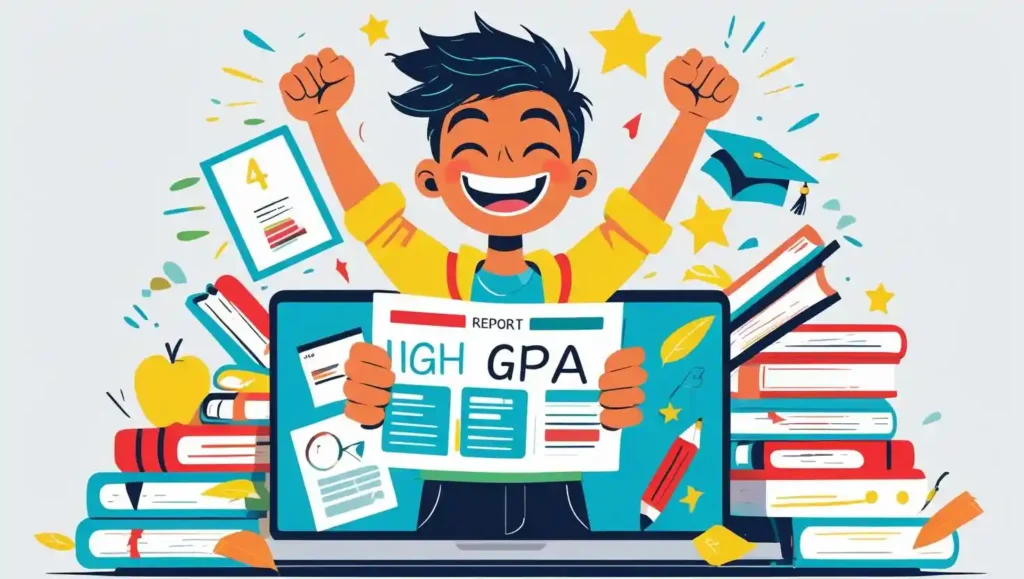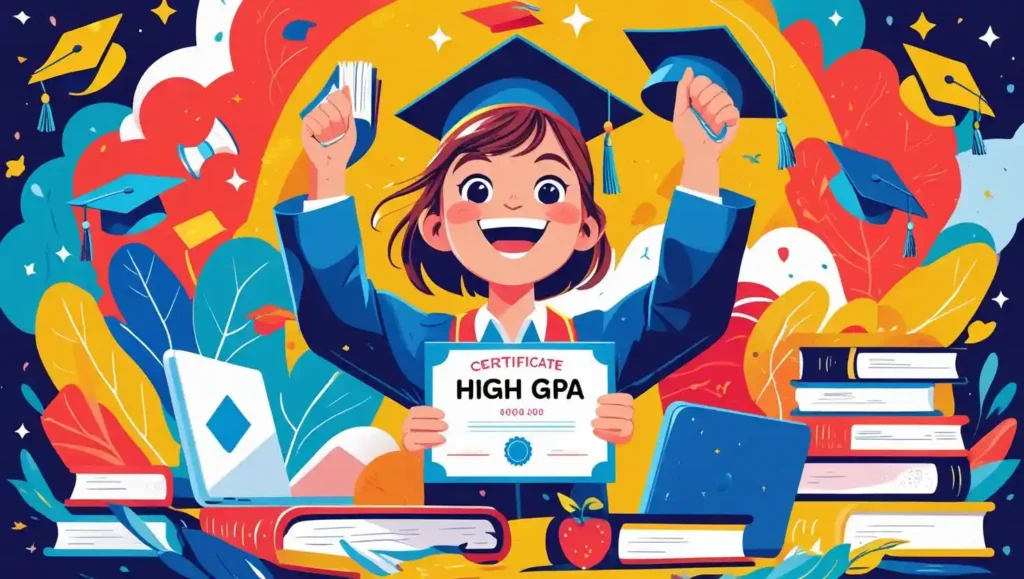Introduction How to Improve GPA and CGPA Quickly
How to Improve GPA and CGPA Quickly, your GPA (Grade Point Average) or CGPA (Cumulative Grade Point Average) is more than just a number—it represents your academic ability, consistency, and discipline. Whether you’re aiming for scholarships, job opportunities, or international admissions, a strong GPA/CGPA can open doors to a brighter future.
But what if your GPA isn’t as high as you’d like? The good news is that it’s never too late to improve. With the right mindset, strategies, and consistent effort, you can raise your GPA or CGPA significantly in a short amount of time.
This article explores practical, effective, and quick tips to boost your GPA and CGPA, even if you’re struggling right now.
Understanding GPA vs. CGPA Before Improvement
GPA (Grade Point Average): Calculated per semester, showing your performance in a specific term.
CGPA (Cumulative GPA): Overall performance across all semesters or academic years.

Why Improving GPA/CGPA Matters
Scholarship Eligibility – Many merit scholarships require a minimum GPA of 3.5/4.0 or equivalent.
Job Opportunities – Employers often consider academic performance during hiring.
International Admissions – A strong GPA/CGPA increases your chances of getting into competitive programs.
Personal Growth – Improving grades boosts confidence and builds stronger learning habits.
Best Tips How to Improve GPA and CGPA Quickly
1. Identify Weak Areas Early
The first step is self-assessment. Look at past report cards or transcripts and identify subjects where you consistently score lower.
Create a list of “weak courses” and focus extra time on them.
Ask yourself: Do I struggle because of lack of understanding, poor study habits, or exam anxiety?
2. Prioritize High-Credit Courses
How to improve your GPA and CGPA is the main concern, not all subjects are equal in weight. For GPA/CGPA, courses with more credit hours affect your score the most.
Focus more on these subjects to maximize your GPA gain.
Example: A 4-credit Math course will impact your GPA more than a 2-credit elective.
👉 Improving in high-weighted subjects gives faster results.
3. Develop a Smart Study Plan
Break large topics into manageable chunks.
Use Pomodoro Technique (25 minutes study, 5 minutes break).
Allocate more time to subjects you find difficult.
Avoid last-minute cramming—consistency is key.
4. Improve Your Attendance and Participation
Professors often give marks for attendance and class participation.
Engaging in discussions, asking questions, and being active in class reflects positively.
Builds rapport with teachers, which may help in grading subjective assessments.
5. Use Past Papers and Practice Tests
Many universities repeat exam patterns. Practicing past papers can:
Help you understand question trends.
Improve time management in exams.
Boost confidence by simulating real test conditions.
6. Seek Help from Professors and Tutors
Don’t hesitate to ask for guidance. Professors appreciate proactive students.
Attend office hours to clarify doubts.
Join study groups or hire a tutor if necessary.
Sometimes a different explanation makes all the difference.
7. Improve Your Writing and Presentation Skills
In subjects like humanities and social sciences, how you present answers matters.
Structure essays with clear introductions, body, and conclusions.
Support arguments with examples and references.
Avoid spelling and grammatical mistakes.
👉 Good presentation can turn an average answer into a high-scoring one.
8. Manage Your Time Effectively
One of the biggest reasons for poor GPA/CGPA is poor time management.
Use planners or apps to schedule assignments and deadlines.
Balance academics with extracurricular activities.
Avoid procrastination—small daily progress leads to big results.
You can use calculators to calculate the correct GPA.

9. Stay Healthy and Manage Stress
Sleep at least 7–8 hours—lack of rest reduces memory retention.
Eat balanced meals; avoid too much caffeine or junk food.
Practice stress-relief methods like meditation, exercise, or short walks.
👉 A healthy mind performs better academically.
10. Take Advantage of Extra Credit Opportunities
Some professors offer extra assignments, projects, or participation bonuses.
Always grab these chances—they can significantly boost your GPA.
Even a small grade improvement in one subject can lift your overall CGPA.
11. Avoid Failing or Repeating Courses
Failed courses drag down your CGPA drastically.
If you’re struggling, focus on at least passing with a decent grade.
Some universities allow repeating courses—take this chance to improve your score.
12. Build Consistency in Every Semester
Improving GPA in one semester is good, but maintaining it is better.
Universities and employers look for consistent performance, not just one strong semester.
Mistakes Students Make While Trying to Improve GPA
❌ Cramming at the last minute instead of regular studying.
❌ Ignoring low-credit courses (they still impact GPA).
❌ Copying assignments instead of learning.
❌ Relying too much on online GPA calculators without checking credit hours.
Real-Life Example
Student A: Had a CGPA of 2.7/4.0 after 3 semesters. By focusing on high-credit courses, attending classes regularly, and seeking help from professors, they raised their CGPA to 3.2/4.0 in one year.
Student B: Ignored weak subjects and continued cramming. Their GPA remained low, and CGPA improvement was minimal.
👉 The difference? Consistency and smart planning.
Long-Term Benefits of a Higher GPA/CGPA
Stronger Resume: Employers see you as disciplined and capable.
Better Scholarships: Higher academic performance can reduce tuition fees.
Higher Confidence: Success in academics spills over into other life areas.
Graduate School Admissions: A strong GPA is often a deciding factor.
Conclusion
Improving your GPA and CGPA isn’t about working harder—it’s about working smarter. By identifying weaknesses, focusing on high-credit courses, staying consistent, and maintaining a balanced lifestyle, you can raise your scores quickly.
Remember: GPA and CGPA are not just numbers. They are reflections of your dedication, focus, and ability to learn effectively that’s how to improve GPA and CGPA quickly. Start small, stay consistent, and your hard work will pay off in the form of higher grades, better opportunities, and greater self-confidence.


